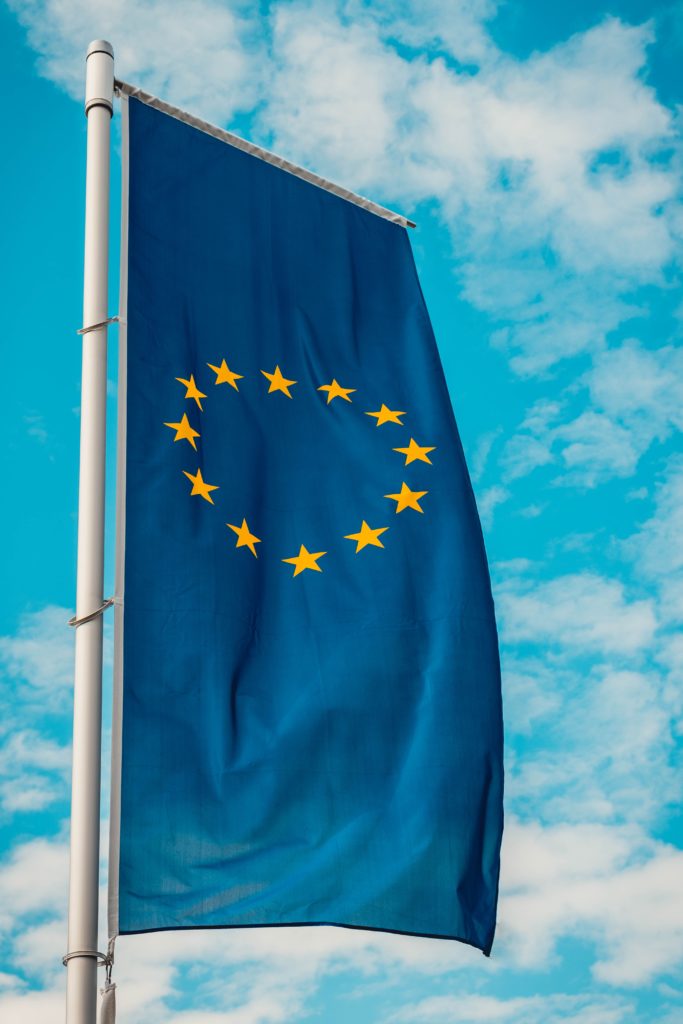
Brexit – Now we have left – 1/2/2020

Maybe surprising to some I watched the clock countdown to an 11.00pm Brexit reality last night without a hint of happiness about this thing that my vote has helped to bring about. Like an intimate relationship with someone who wants a lifestyle you don’t want, the necessity of changing the intimate relationship into a friendship carries the sadness of what could have been if only…
So I’m sad that we’ve left but feel that the UK’s culture is infused with its Island heritage and history in a way that makes ideas of sovereignty and individuality slightly more important to Brits than the EU could accommodate. Sadly, I also remain convinced that economic reality dictates we leave
I see that many across Europe are touched by the sadness of our exit and I’m heartened that whilst we have had to leave the club we remain friends. As with the end of a personal relationship I am stalked by my own set of “if only” questions:
- Why did the people supporting EU ideology not understand that the UK position of: Flexible job market, English language, long term openness to immigration; might make the UK a target for mass East European migration and that migration might break the fragile social adjustments that were already underway to accommodate the historical commonwealth immigration. A relaxation of the EU free movement rules to allow the UK to set a less open immigration policy might have helped Cameron and removed some of the impetus to leave.
- Does the EU not realise that bloc level trade policy can only work in the long term once people feel European first (Like Americans do). Brits currently have little appetite for suffering higher costs to protect Spanish Orange growers or the French to protect British pork pies. The level of openness that the intersection of hard-line ideology and EU expansion into more culturally diverse countries requires, is well ahead of EU citizens’ preparedness to tolerate it.
- Does the EU not see that the communal huddling at the back of the cave that seems to characterise much of EU policy is at odds with the active, entrepreneurial, dynamic rest of the world? How can the EU build a future with ever larger portions of its human and financial resources being used to pander to naive, idealistic, ‘woke’ groups whilst ignoring the growing hostility of their own populations?
- Why, after the vote, did Tusk not articulate specific positive reasons for the UK to remain in the EU in response to the obvious concerns that drove Brexit? Rather than seek “special places in hell” for those who had championed Brexit. This (along with other EU approaches) has poisoned the UK view of the EU
- Why was the UK remainer community so devious and dishonourable in looking to make the counter case to the vote? Creating a mistrust of liberal elites and pushing ‘normal’ (non-woke) Brits away from the main stream (media, elites, politics) probably for decades and provide fertile recruiting grounds for extreme politics
The answers to these questions and a reflection of their validity in EU policy & approach may have resulted in a different outcome to today. However, it would also have led to a different EU. An EU that is less involved in member country affairs, with fewer powers, and probably one that most EU citizens don’t want.
Maybe WW2 is the historical context that means EU and UK citizens will always have different perspectives. Preventing a war from happening again may be more deeply ingrained on the continent than in the UK. Perhaps the plucky Brits standing alone against the Germans cf the military conquest of your home might be the 2 cultural foundations that shape the different destinations for the EU and the UK.
How a Europhile voted leave in the Brexit referendum


Having lived and worked in 4 EU countries I expected that my voting decision on Brexit would be a very easy “Remain”. But it wasn’t! I ended up voting leave despite my emotions telling me to do otherwise and even now, over 3 years on, I would do the same.
Let me explain.
Many years ago I stumbled into a realisation that political tribalism was probably a stupid position to adopt. Until that realisation, as someone from a working class background, I had always voted Labour and assumed I always would.
The realisation came when it dawned on me that if there were a single political position that actually worked we would have discovered it by now and be using it! Like the wheel that has remained unchanged for millennia, we would have resolved the problem of how to organise ourselves and be doing it. That we haven’t resolved how we should organise ourselves indicates that this is a dynamic problem requiring an ever adjusting solution. In that context it’s hard to find a broad role for option-constraining political dogma. Like driving a car – left, right and straight on are all viable options depending on the prevailing circumstances.
Since that realization my voting record has covered all three major parties only dependent on whether I felt we needed a bit more social justice (turn left) a bit more wealth (turn right) or a bit more political humility (straight on – Lib Dem) at the time.
So when the Brexit vote came up I adopted what has become my normal approach to voting and tried to assemble some objective data on which to base my decision between the two choices (albeit with the expectation that whatever data I looked at it would confirm my Remain expectation).
I decided to make my Brexit choice based on historic performance data rather than to try and guess the future which I had concluded decades ago was a fool’s errand. The accuracy of predictions about the future for any new situation are largely meaningless (Economic predictions on any new situation seem to be no better than coin tosses, predictions on any new infrastructure delivery times are useless –HS2, NHS IT etc),
So for the Brexit vote I decided that my most heavily weighted data parameter would be per capita GDP figures and set a time window of 1980 (easier access to numbers) to 2015 (subsequently updated to 2016). I measured per capital GDP in 1980 for each of the countries in the EU at the time, again for 2016 and compared those numbers to comparable non-eu countries (Canada, Iceland, Australia, USA, New Zealand, Norway Switzerland and Singapore).
I used these Wikipedia figures and I leave you to collect and check the data.
From that data & other trends I concluded that:
- The economic per capita GDP argument for the EU wasn’t that strong.
- The clubbing together (economies of scale and negotiating power) argument was weak.
- Shrinking agility & growing membership was not an optimistic indicator of the EU’s future.
GDP argument
From that (admittedly simplistic analysis) I came away with the following analysis:
- The EU has done significantly (20%-30%) worse in relative per capita GDP terms than comparable non-EU countries over the period.
- That Southern EU countries seem to have fared slightly worse than the EU as an average and it appears that wealth might even be moving from the poorer south to the wealthier north!
- The only economies that have done very well are the low tax (tax haven) countries of Ireland and Luxemburg
- With Australia, Canada, Singapore, Iceland, Norway and Switzerland having higher relative per capita GDP than Germany it’s clearly possible to prosper outside the EU
Better together argument
What about the clubbing together (economies of scale and negotiating power) argument?
Whilst a large market offers an attractive opportunity, the disparate national interests often present a significant and growing barrier to actually taking advantage of it. As an example most European countries probably don’t care about protecting a single Belgium village beer, but it nearly sabotaged the Canada trade deal.
And when you look at the external tariffs that the EU applies to non-EU countries it seems to me that EU citizens are paying higher than global market prices for many foods and goods to protect EU producers. That protection seems to be also resulting in those protected producers falling behind in terms of productivity when compared to the wider global market.
The other economic figure that influenced my thinking was how despite significantly growing in size the EU economy has shrunk as a percentage of the world economy (from 24% for the members in 1980 to 16% today despite the number of countries increasing substantially). So whilst the EU remains the largest trading block its role in the world economy continues to shrink.
Now some of this shrinkage (along with the US) is a reflection of the growth in the world economy as countries develop but that also amplifies the importance of working with the rest of the world that EU rigidity makes harder.
The longer outlook for the EU?
Whilst largely neutral I have a concern that growing EU Federalism, EU dogmatism and a lack of flexibility may collide with growing nationalism within EU countries and (in my view) a growing need for agility in trade, economic and political matters. The faster downward trend in the % of the world’s GDP that the EU represents (even compared to similar developed economies), seems to reinforce the growing gap between the rate of change and the EU’s ability to accommodate it. I don’t think this bodes well for the future.
I think some things take as long as needed and cannot be accelerated. I describe these sorts of situations as being subject to the ”laws of the farm” where plants grow at a rate determined by their nature and our ability to change that rate is severely constrained.
So whilst I agree with the long term goals of the EU I think they have allowed dogma and ideology to override the fact that the EU is a collection of individual countries, cultures and histories that make integrating them into a single entity subject to the “Law of the farm”
Brexit, family twists & turns

With today’s announcement of Jo Johnson’s decision to quit his brother’s government I couldn’t get out of my mind the image of the younger brother, who wanting to be part of his big brother’s gang, abandons his toy trains to join up with the “Big boys” only to wet himself when he gets shouted at as the big boys get into a tussle with rivals.
He’s now done the honourable thing and gone back to things less scary than the uncertainty of the radical change his brother is leading. And whilst Jo’s ‘joining then leaving’ smacks of the sort of middle management indecision and appeasment that plagues swathes of corporate and middle Britain, as a younger brother myself, I recognise the spark of ambition, the over-reaching of available courage, and the push of family loyalty that probably prompted him to accept the ministerial post in the first place. He’s a good, genuine and reasonable man but as the Bernard Shaw quote points out “all progress depends on the unreasonable man“.
As for his brother Boris, I’ve been unexpectedly impressed by the steel, focus and clarity of purpose that I’ve witnessed since he was elected PM. I was expecting that Boris’s affable, bumbling style would result in the usual compromises and accommodations that are the hallmark of the amateur.
But not a hint of hestiation! Boris cleaned out the uncertain and hostile in the cabinet with a speed that got it over quickly. He then set out his vision for Britain with energy and humour. All the time maintaing an unwavering certainty about how Brexit would be resolved. Very different to May’s weakness and dithering.
Is what Boris is doing correct? possibly, but correct or not I’m pleased to see that he has recognised that to have a chance of doing well you need all the players on the team to be committed to their teammates and to the agreed strategy. So you might call removing the uncommitted a purge, or just a difficult reality. But like jumping across a ravine, Brexit needs a team with the single focus of getting to the other side, and I’m glad that Boris is showing the leadership to commit to the jump.
The last 3 years has been an impossible search for the safe middle ground and the May premiership lies broken at the bottom of the ravine as a consequence. It’s been like watching the Liverpool team players run onto the pitch with 4 different approaches and the strikers only prepared to put in 2 goals because the oppositions told them that’s all they can have! Luckily great football managers know the emotionally tough demands of team leadership and I think Boris may also.
My mantra when faced with tough decisions is to remind myself that “a painful end is better than pain without end”. As Boris navigates through his own difficult choices I hope that despite family, party and parliamentary challenges he gets the chance to try things his way.
